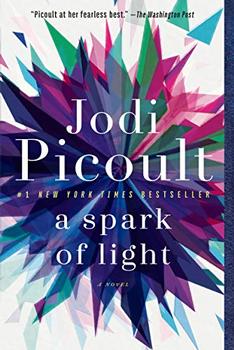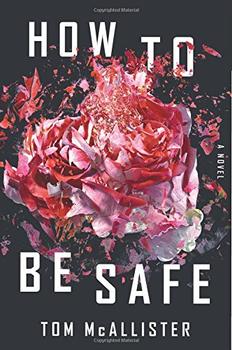Summary | Excerpt | Reviews | Beyond the book | Read-Alikes | Genres & Themes | Author Bio

Spanning four decades and taking on a host of topical issues, from gun violence to the coarsening of public discourse, Jennifer duBois' latest novel The Spectators charts the rise and fall of an enigmatic politician-turned-talk-show-host. The fast-paced character study follows the career of Matthew, or "Mattie" Miller as he transforms from a high-minded idealist into the closeted, clumsy host of The Mattie M Show, a '90s tabloid talk show notorious for staged fights and profanity. Alternating between the perspectives of Mattie's ex-lover Semi and his new publicist Cel, the novel explores American culture's obsession with spectacle, and surveys the social lives of gay men after the 1969 Stonewall Rebellion, in which patrons of a New York City gay bar protested prejudicial targeting by the police.
The novel opens on a tragic note in 1993. A mass shooting has just occurred at an Ohio high school, and the media quickly discovers that the students responsible loved to watch The Mattie M Show. The program, an obvious nod to The Jerry Springer Show, routinely features sensational fights between all kinds of outcasts, whether codependent twins or teenage Satanists. Outraged pundits waste no time in linking the shooting to the talk show's celebration of violence and dysfunction.
New to New York and her role as Mattie's publicist, Cel finds herself in the uncomfortable position of having to defend a man who is ubiquitously disliked. Onscreen, Mattie "exudes an aura of beleaguered middle management," offering a stark contrast to his guests' theatrics, and "intellectuals despise him as much as Evangelicals." The fledgling publicist's flailing efforts to spin the controversy comprise the bulk of her chapters, which consider the extent to which producers of sensational media bear responsibility for the actions of their audience.
An underdeveloped subplot concerns Cel's social background. The taciturn child of working-class, agrarian parents, Cel's harrowing youth, relayed in fragmentary flashbacks, has led her to become mired in self-doubt. These scenes are too rushed and sporadic to fully develop the publicist as a character, though they help explain why her interactions with the media and her coworkers are so stilted and self-conscious.
Cel also feels bewildered by the mystery of who Mattie is. Longtime staff members lament the current state of The Mattie M Show, with "its rubbernecking and mayhem," and they fondly recall that "its stories were once uncynical, anchored in substantive policy discussion." The information Cel gathers piecemeal about Mattie's past holds readers in a state of suspense, compensating for a plot light on action.
Sandwiched between Cel's chapters are those told from the perspective of Semi, a playwright who had an affair with Mattie in the '70s and '80s. Semi dramatizes the tabloid talk show host's former life as a popular local politician, whose "energy was outrageous, no matter what the hour." A far more engaging narrator than Cel, Semi vividly recollects Mattie's surprising journey from passionately serving his constituents to hosting a show "routinely described as one of the fundamental pathologies of our age."
Beginning in 1969, these sections double as a catalog of gay life after the Stonewall Rebellion. Semi regularly references cultural watersheds, from the advent of disco to the death of John Lennon, and reflects on the thrills of gay liberation and the trauma of the AIDS epidemic. "A time of scheming, radically expanding hope," the playwright remembers, gave way to "a time of exodus," "insurrection," and "war." Mattie is closeted across these decades, but the rise and fall of his political career happens to parallel the gay community's social ascendance in the '70s and marginalization in the '80s.
As absorbing as Semi's storytelling can be, the structure of The Spectators is disjointed. The two main storylines share few common themes; little effort is made to gauge the state of gay life in the early '90s, or to discern the origins of our present-day "culture of spectacle" in the '70s and '80s. All that connects the two plots is Mattie himself, ever elusive and enigmatic.
Cel's storyline nevertheless offers an interesting look into a social conversation from another era. The national debate about gun violence has shifted dramatically in recent years, especially after the 2018 shooting at Marjorie Stoneman Douglas High School in Parkland, Florida (See Beyond the Book), and few mainstream commentators are arguing that vapid television programs like The Mattie M Show contribute to mass shootings. By dramatizing a time when they did, duBois draws attention to how much the public's views on gun violence have changed, even as the issue tragically remains unsolved and ongoing.
Broad in scope, The Spectators explores a seminal era in LGBTQ+ history with insight and intelligence—a sensitive portrayal of the devastation wrought by the AIDS epidemic.
![]() This review
first ran in the April 3, 2019
issue of BookBrowse Recommends.
This review
first ran in the April 3, 2019
issue of BookBrowse Recommends.

If you liked The Spectators, try these:

by Jodi Picoult
Published 2019
A powerful and provocative new novel about ordinary lives that intersect during a heart-stopping crisis.

by Tom McAllister
Published 2018
We Need to Talk about Kevin meets Dept. of Speculation in a novel about one woman's furious grappling with the repercussions of small-town tragedy.
Your guide toexceptional books
BookBrowse seeks out and recommends the best in contemporary fiction and nonfiction—books that not only engage and entertain but also deepen our understanding of ourselves and the world around us.